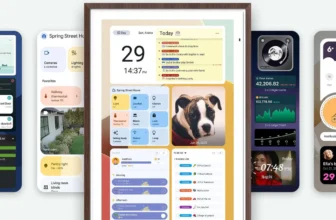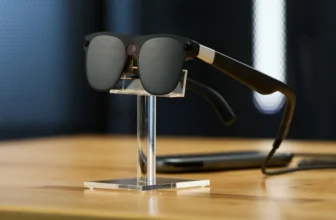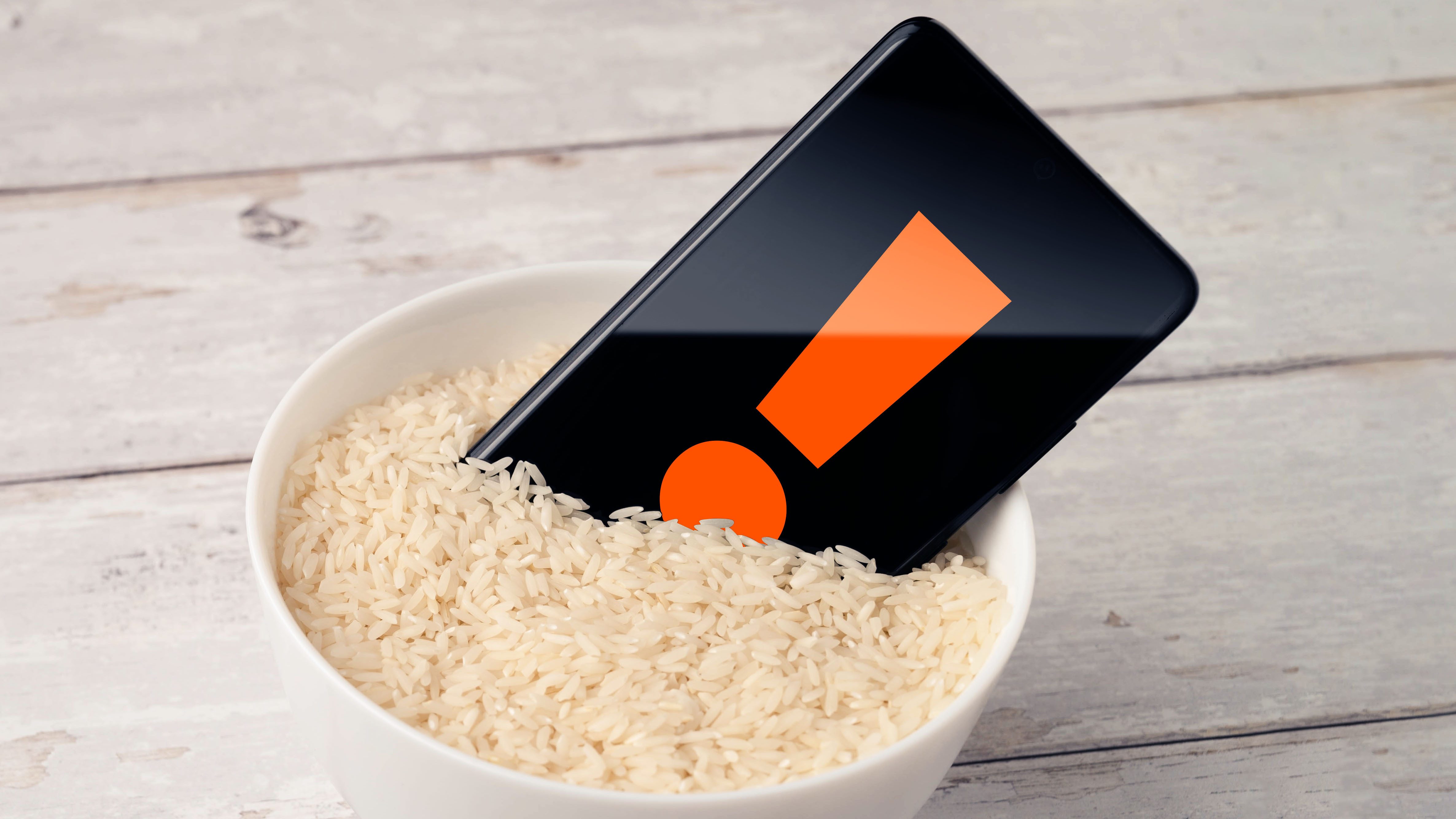
Did you get your smartphone all wet after accidentally dropping it into the water? There’s no need to press the panic button. Here’s how you can prevent water damage to smartphones that have gotten all wet. Also equally important, we share what you should avoid doing at all costs in such a situation!
We’ve all been there: One second you’ve got your attention fixed on a pint of beer in front of you and before you know it, your expensive smartphone somehow slipped into the glass. However, the danger of exposing your smartphone to more than just moisture lurks almost everywhere. There are times when the smartphone will fall into the toilet or a puddle. Perhaps you forgot it is in your pants pocket before throwing it into the washing machine. There are even moments when heavy rain is enough to cause damage.
If this is exactly what happened to you, acting swiftly is of utmost importance. Let’s not waste any more time. We’ll explain what you can do, what to avoid, and other preventative measures.
Got your smartphone all wet? Here’s what you should do now
If the accident has already happened, every second counts. Don’t waste any more time and get started straight away. You should consider the following steps:
- Turn off the device if you haven’t already done so.
- Remove the protective cover if possible. Remove the microSD and SIM cards as well.
- If you have an older smartphone or a modular one like the Fairphone 5 (review), you may be able to remove the battery.
- Take a cloth (preferably a microfiber towel) or a sheet of kitchen towel and gently dab the wet smartphone dry. Avoid sending more water into the small crevices within the smartphone casing.
- There are repair kits available to help you dry your smartphone. Use one of these. Alternatively, use bags of silica gel.
- Give your smartphone at least two days to dry out. Use another device during this time for your smartphone to have enough time to dry completely.
- If the device cannot be turned on again after a couple of days of drying, try to charge it. If this does not work, it is most likely the battery has been affected/damaged.
- If the smartphone remains dead, the only solution is to bring it to a professional store. Return it to the manufacturer, your trusted smartphone workshop, or see if there is a repair store in your town where skilled DIY enthusiasts are more than willing to use your handset as a guinea pig.
- Are you skilled enough to disassemble the smartphone yourself? There are DIY repair kits and tons of instructions on YouTube that you can follow. However, bear in mind that this is often a complex endeavor, and following this procedure will void your warranty.
- If the smartphone does boot up, you should observe over the first few days to see whether everything works as before or there are errors that pop up. Play music and watch videos to check whether the speakers work normally. Do give the touchscreen a rigorous run-through. Playing games is best at this stage.
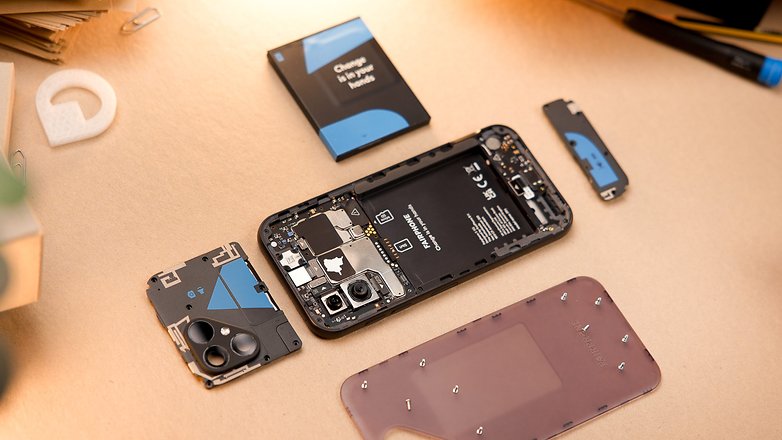
Got your smartphone all wet? What you should NOT do!
I’m currently considering whether the things you shouldn’t do if your smartphone experiences water damage is even more important. There is a risk that you could have made an already unfortunate situation even worse.
- Do not turn on the smartphone immediately if it is already switched off.
- Do not press any buttons.
- Don’t shake it and don’t hit it against your hand. This may only spread the water deeper into the handset.
- Don’t press the smartphone either since doing so might spread the water within deeper, causing even more damage.
- Do not take apart your smartphone if it is not designed for that and do not forcefully pry open the case. This could activate the integrated moisture indicators and void your warranty.
- Do not expose it to unnecessary heat because of the moisture! Avoid the temptation to use a hairdryer, don’t place it in the oven or microwave, and above all, do not place it on the heater. Such heat can damage the electronics within and while your smartphone might be bone dry, it will be completely ruined!
- Forget about burying it in rice! Yes, rice is often recommended for drying (we also did so in the previous version of this article) and rice can indeed help to dry electronic devices. The catch, however, is how moisture can also make the rice sticky and clog up parts of the smartphone, resulting in a different kind of damage. It is therefore better to use silica gel as mentioned above. Alternatively, simply air dry the smartphone.
Prevention is better than looking for a fix: How to be better prepared
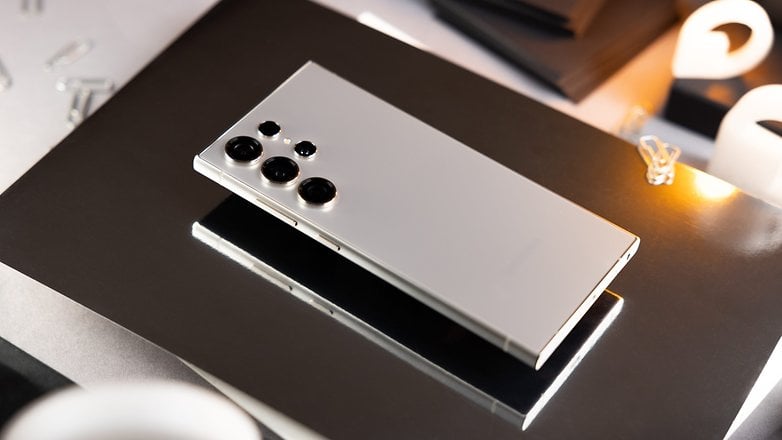
If you have landed here via Google because you are holding a wet smartphone in your hands, it is too late by now to read this segment. However, for the sake of the future, here are a few points that can help you avoid the next debacle.
Look for IP-certified models when buying a smartphone
When buying a smartphone, you could first check whether the smartphone is IP-certified and if so, which IP class is it rated. The best option is to opt for a smartphone with IP68 or IP67 ratings. Many premium phones such as the Galaxy S24 Ultra (review) or the brand-new Google Pixel 9 Pro XL (review) have this protection rating against water and dust. However, you can also expect high IP protection classes on models such as the Galaxy A35 (review) or the Motorola Edge 40 (review) for inexpensive phones under the $300 mark.
Please note, however, that even having IP68 certification is not a free pass for your smartphone to go swimming. You can find out exactly what IP68 or other certifications mean in our article below, which breaks down all IP protection classes for smartphones:
Note that all these are preventative measures. The protection rating here always applies to fresh water! Hence, if you dunk your smartphone in beer, leave it on the beach in seawater or soapy water, completely different standards apply and the protection rating no longer applies! In any case, one thing is certain: It’s better not to test a manufacturer’s promise, even if they promise you a waterproof smartphone. Don’t be fooled by certifications such as IP53 as even rain can pose a danger for these devices.
Stock up on rescue kits, waterproof bags, or even have a replacement smartphone as preventative measures
Another thing you can do long before water damage occurs: Stock up on rescue kits. You can buy rescue kits from the associated technology stores or Amazon, which you can use in an emergency. These are usually dry bags into which you throw your wet smartphone and leave it for two days. These are available for less than $15 but you can also buy packets of silica gel as mentioned above and place it in the cupboard for emergencies.
You can also buy waterproof bags to store your smartphone whenever you bring your handset out to a place with the danger of water damage, such as at the beach. Such a waterproof bag lets you even bring your smartphone into the sea while you snorkel.
The last tip won’t save your smartphone from any water damage, but it could help you if you find yourself in this predicament, or if you have to live without your smartphone in general: Just get yourself a cheap smartphone! Take a look at our article with the best sub-$200 smartphones and check out the listed options. These devices are affordable and are good enough for all everyday tasks that a smartphone is expected to do.
If you’re drying out a wet smartphone for two days or sending a defective handset in for repair, you’ll have a cheap emergency smartphone that allows you to be reached at any time, scroll through social media, and snap photos.
That’s all for now and I’m keeping my fingers crossed that you’ll either be saved from water damage or at least get your smartphone up and running again with these tips and tricks!
Do you have any other recommendations on how to save a wet smartphone? Do let us know in the comments.




